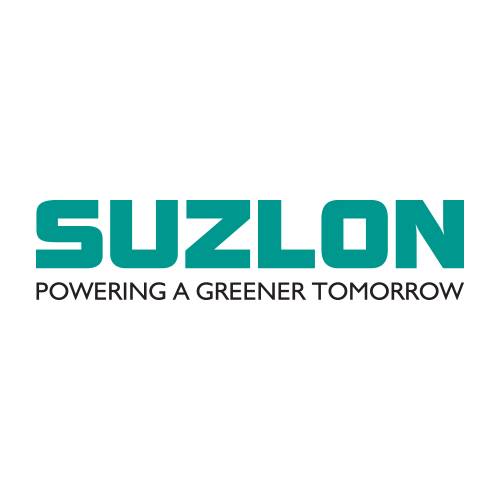The Dawn of Renewable Energy Retail in India
October 11, 2024, 9:38 pm

Location: India, Tamil Nadu, Chennai
Employees: 11-50
Founded date: 2001
Total raised: $61.46M
The Indian Renewable Energy Development Agency Limited (IREDA) is on the brink of a transformative leap. Recently, it received the green light from the Department of Investment and Public Asset Management (DIPAM) to establish a wholly-owned retail subsidiary. This move is more than just a business expansion; it’s a commitment to sustainability and innovation.
The new subsidiary will cater to various government schemes, including PM-Suryaghar for rooftop solar installations and PM-KUSUM, which promotes solar energy in agriculture. It aims to bridge the gap between renewable energy solutions and consumers, both urban and rural. The vision is clear: empower individuals with accessible financing options for green technologies, electric vehicles, and energy storage solutions.
This initiative is a vital step in India's journey toward a sustainable future. It’s about planting seeds of change in the hearts of communities. By making renewable energy more accessible, IREDA is not just selling products; it’s nurturing a culture of sustainability. The retail subsidiary will act as a conduit, channeling innovative financing options to consumers eager to reduce their carbon footprints.
In the realm of renewable energy, the winds of change are blowing. India’s wind energy sector stands at a critical juncture. Industry leaders are calling for robust policy support to position the country as a global leader in renewable energy production. The installed wind energy capacity has already crossed 48 gigawatts, but the potential is far greater.
JP Chalasani, CEO of Suzlon Group, emphasizes the need for consistent policies that support domestic manufacturing and innovation. The wind energy sector is ripe for growth, but it requires a nurturing environment. Without supportive policies, the momentum could stall. The industry is looking for a steady hand to guide it through the complexities of the energy landscape.
Meanwhile, Vedanta’s Hindustan Zinc is making strides in battery technology. In collaboration with the Indian Institute of Technology Madras (IIT Madras), they are developing a groundbreaking zinc-air battery prototype. This 1 kWh electrically rechargeable battery could be a game-changer. While lithium-ion batteries dominate the market, they come with challenges—high costs, resource scarcity, and safety concerns. Zinc-air batteries offer a promising alternative, potentially revolutionizing energy storage.
The partnership between Vedanta and IIT Madras symbolizes a commitment to innovation. It’s a dance of intellect and industry, where academic prowess meets practical application. This collaboration aims to push the boundaries of what’s possible in energy storage, paving the way for a more sustainable future.
As the renewable energy landscape evolves, so does the construction sector. Tata Hitachi showcased its latest innovations at the 14th RAHSTA Expo in Mumbai. The ZAXIS 38U mini excavator and SHINRAI Prime backhoe loader are designed to meet the growing demands of the Indian construction industry. These machines are not just tools; they are the backbone of infrastructure development.
The construction sector is the canvas on which India’s future will be painted. With advancements in machinery, the potential for growth is immense. The ZAXIS 38U, with its compact design and versatility, is a testament to the evolving needs of the industry. It’s about building not just structures, but a sustainable future.
In the midst of these advancements, the real estate sector is also witnessing significant developments. After a decade-long wait, homebuyers of the Amrapali Dream Valley project in Greater Noida West are finally receiving their keys. The National Buildings Construction Corporation (NBCC) has taken charge of completing this stalled project, bringing hope to many who have been left in limbo.
The emotional toll on these homebuyers has been immense. For many, purchasing a flat was a lifelong dream, now tinged with anxiety and uncertainty. The handover of these flats is not just a transaction; it’s a restoration of faith. It’s a reminder that perseverance pays off.
The Amrapali Dream Valley saga highlights the importance of accountability in the real estate sector. The Supreme Court’s intervention to hold the Amrapali Group accountable for misusing homebuyers’ funds is a significant step toward restoring trust. It’s a wake-up call for the industry to prioritize transparency and integrity.
As India navigates the complexities of renewable energy, construction, and real estate, the path ahead is filled with opportunities. The establishment of IREDA’s retail subsidiary is a beacon of hope. It signifies a commitment to sustainability and innovation at the grassroots level.
The collaboration between Vedanta and IIT Madras is a testament to the power of partnership in driving technological advancements. The wind energy sector’s call for policy support is a reminder that growth requires a nurturing environment.
In this intricate tapestry of progress, each thread is vital. From renewable energy to construction and real estate, the future is being woven with care. The dawn of renewable energy retail in India is not just a business venture; it’s a movement toward a sustainable tomorrow. The time for action is now. The seeds of change have been planted, and it’s time to watch them grow.
The new subsidiary will cater to various government schemes, including PM-Suryaghar for rooftop solar installations and PM-KUSUM, which promotes solar energy in agriculture. It aims to bridge the gap between renewable energy solutions and consumers, both urban and rural. The vision is clear: empower individuals with accessible financing options for green technologies, electric vehicles, and energy storage solutions.
This initiative is a vital step in India's journey toward a sustainable future. It’s about planting seeds of change in the hearts of communities. By making renewable energy more accessible, IREDA is not just selling products; it’s nurturing a culture of sustainability. The retail subsidiary will act as a conduit, channeling innovative financing options to consumers eager to reduce their carbon footprints.
In the realm of renewable energy, the winds of change are blowing. India’s wind energy sector stands at a critical juncture. Industry leaders are calling for robust policy support to position the country as a global leader in renewable energy production. The installed wind energy capacity has already crossed 48 gigawatts, but the potential is far greater.
JP Chalasani, CEO of Suzlon Group, emphasizes the need for consistent policies that support domestic manufacturing and innovation. The wind energy sector is ripe for growth, but it requires a nurturing environment. Without supportive policies, the momentum could stall. The industry is looking for a steady hand to guide it through the complexities of the energy landscape.
Meanwhile, Vedanta’s Hindustan Zinc is making strides in battery technology. In collaboration with the Indian Institute of Technology Madras (IIT Madras), they are developing a groundbreaking zinc-air battery prototype. This 1 kWh electrically rechargeable battery could be a game-changer. While lithium-ion batteries dominate the market, they come with challenges—high costs, resource scarcity, and safety concerns. Zinc-air batteries offer a promising alternative, potentially revolutionizing energy storage.
The partnership between Vedanta and IIT Madras symbolizes a commitment to innovation. It’s a dance of intellect and industry, where academic prowess meets practical application. This collaboration aims to push the boundaries of what’s possible in energy storage, paving the way for a more sustainable future.
As the renewable energy landscape evolves, so does the construction sector. Tata Hitachi showcased its latest innovations at the 14th RAHSTA Expo in Mumbai. The ZAXIS 38U mini excavator and SHINRAI Prime backhoe loader are designed to meet the growing demands of the Indian construction industry. These machines are not just tools; they are the backbone of infrastructure development.
The construction sector is the canvas on which India’s future will be painted. With advancements in machinery, the potential for growth is immense. The ZAXIS 38U, with its compact design and versatility, is a testament to the evolving needs of the industry. It’s about building not just structures, but a sustainable future.
In the midst of these advancements, the real estate sector is also witnessing significant developments. After a decade-long wait, homebuyers of the Amrapali Dream Valley project in Greater Noida West are finally receiving their keys. The National Buildings Construction Corporation (NBCC) has taken charge of completing this stalled project, bringing hope to many who have been left in limbo.
The emotional toll on these homebuyers has been immense. For many, purchasing a flat was a lifelong dream, now tinged with anxiety and uncertainty. The handover of these flats is not just a transaction; it’s a restoration of faith. It’s a reminder that perseverance pays off.
The Amrapali Dream Valley saga highlights the importance of accountability in the real estate sector. The Supreme Court’s intervention to hold the Amrapali Group accountable for misusing homebuyers’ funds is a significant step toward restoring trust. It’s a wake-up call for the industry to prioritize transparency and integrity.
As India navigates the complexities of renewable energy, construction, and real estate, the path ahead is filled with opportunities. The establishment of IREDA’s retail subsidiary is a beacon of hope. It signifies a commitment to sustainability and innovation at the grassroots level.
The collaboration between Vedanta and IIT Madras is a testament to the power of partnership in driving technological advancements. The wind energy sector’s call for policy support is a reminder that growth requires a nurturing environment.
In this intricate tapestry of progress, each thread is vital. From renewable energy to construction and real estate, the future is being woven with care. The dawn of renewable energy retail in India is not just a business venture; it’s a movement toward a sustainable tomorrow. The time for action is now. The seeds of change have been planted, and it’s time to watch them grow.

